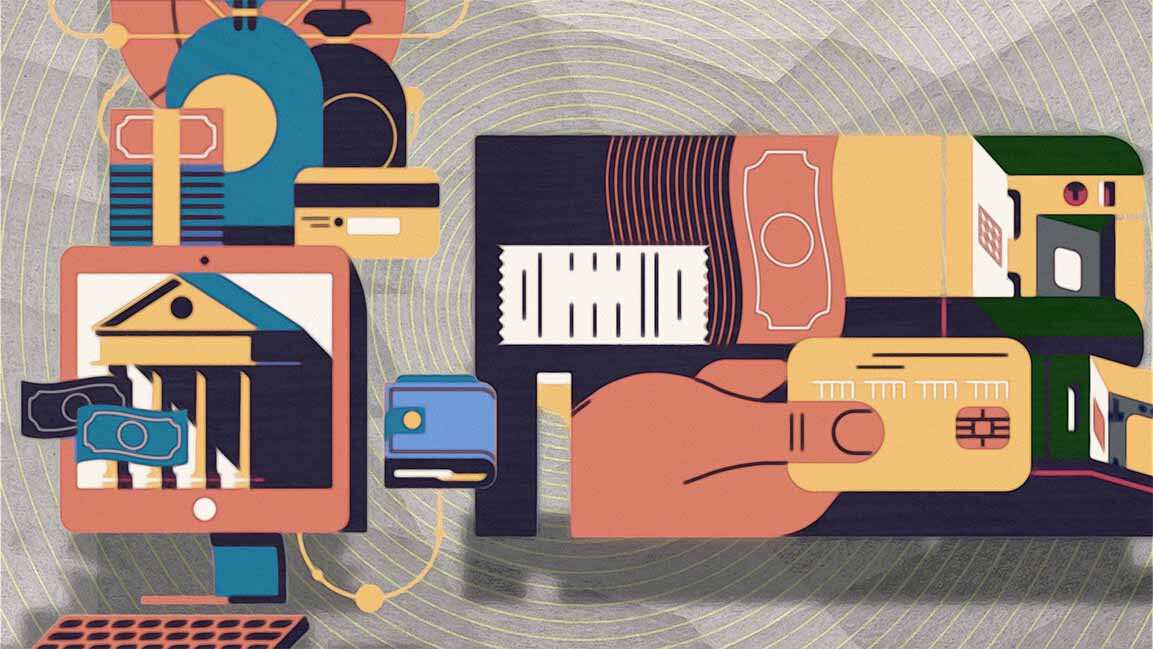- | 9:00 am
Banks in the Middle East need to be smart, sustainable and secure. Can fintech help?
Leveraging big data and AI, fintech has fundamentally changed the industry

The financial services industry is often at the epicenter of disruptions like geopolitical instabilities, inflation, and supply chain issues. And like every other industry, technology has ensured the banking sector’s survival, relevance, and progress.
“Technology is a deflationary force against today’s uncertainties and conduit to new revenue opportunities,” says Saad Toma, General Manager, IBM Middle East and Africa. “Banks understand that they must transition their business model and operations to a client-centric approach.”
By challenging traditional banking with more innovative solutions, fintech has fundamentally changed the industry. “Due to this disruption, innovation has accelerated across the entire sector. As FOMO (fear of missing out) and market erosion kicks in, the entire sector is forced to keep up or be left behind,” says David Boast, General Manager of Endava UAE.
Banks are redesigning and automating business processes to improve returns and access new revenue streams. This aligns with the growing emphasis the Middle East is placing on the capabilities of artificial intelligence (AI) in strengthening the economy, which makes it integral to regional banks’ current and future operations.
Banks like First Abu Dhabi Bank, Qatar National Bank, Capital Bank of Jordan, and Al Rajhi Capital are integrating AI capabilities to drive cost efficiency and create opportunities for innovation.
Fernando Morillo, Group Head of Retail Banking at Mashreq, can attest to this as Mashreq launched Mashreq Neo, an application offering a branchless and paperless personal banking experience, in 2017. “We also introduced digital business bank NEOBiz, specifically tailored to entrepreneurs with complete digital onboarding, and electronic facial recognition technology to facilitate the onboarding of large corporate clients.”
THE PAPERLESS GENERATION
Aside from streamlining banks’ internal operations, fintech has also transformed the customer journey. The decline of payment instruments that require touch or process-intensive interaction, such as cash and cheques, is undeniable, says Boast, adding that the pandemic caused a seismic shift even among those most loyal to traditional banking instruments. “Overnight, everyone had to pivot and adapt to a new way of banking or risked becoming unbanked.”
Banks observed this trend and reacted accordingly. “Mashreq is systematically eliminating paper from all onboarding, engagement, and servicing journeys and processes,” Morillo says.
He adds the bank no longer uses paper forms for credit card, account opening, wealth or trading account set up; various servicing procedures are now entirely conducted in a digital format.
This reduces energy-intensive services, physical paperwork, and clunky in-person banking interactions, and Boast believes these initiatives are financially and environmentally sound.
“It has led to fewer journeys to physical banks, saving on carbon emissions, and, in most cases, improving the speed of transactions [and] customer experience,” he says, adding banks’ shift to green initiatives demonstrates to the public as well as regulators and shareholders its environmental obligation.
INTEGRATING ENVIRONMENTAL FACTORS
Fintech solutions also support the social component of sustainability by providing services to customers who may be unintentionally excluded. Firms are developing tools that allow customers to track and reduce their carbon footprints to promote more sustainable behaviors and facilitate the growth of green bonds, and finance projects with positive environmental benefits.
“Fintech companies are integrating environmental factors into their lending processes, assessing the environmental impact of potential borrowers, and offering incentives for eco-friendly practices,” says Boast.
“They may also utilize alternative data sources to assess a borrower’s sustainability efforts, making it easier for environmentally conscious individuals and businesses to access financing for eco-friendly projects.”
This has its challenges, with the relatively low maturity of such products. “The value and risk associated with eco-friendly projects can be challenging to quantify along with the long-term viability,” Boast says.
“Collaborations, partnerships, and technology-driven solutions can help make eco-friendly loan products more accessible and financially viable for lenders and borrowers.”
SUPPORTING ESG IMPACTS
These possibilities, Toma says, highlight how effective use of Environmental, Social and Governance (ESG) data can accelerate profitability and growth.
“With technology, ESG data can be made visible and actionable with embedded AI into core business functions, helping clients achieve profit with purpose,” he says. “This includes increasing productivity, reducing costs, waste, and emissions, and meeting regulatory requirements, enabling organizations to make more sustainable decisions.”
Referencing a recent IBM study, Toma says that 95% of organizations in the Middle East and Africa have developed ESG propositions. Still, only 36% say they have made significant progress toward their goals, with 67% citing a struggle to manage an overload of manual data.
“This shows that executives need to think more broadly about ESG, prioritizing transparency, breaking down barriers to ESG data, and funneling key insights back into the organization,” he says.
Boast adds that boards should pressure their executives to provide this information to ensure the right investment decisions are made.
“Shareholders are focussed on the ESG agenda and are demanding this level of focus,” he says. “The only way to truly understand your ESG impact is to understand your customers, your regulators, and the entire supply chain that is part of providing the service you offer to customers.”
EFFICIENCIES AND ETHICS
With the benefits of fintech so ubiquitous, it is no surprise that investment in these solutions is on an upward trend. Toma says that, on average, a typical institution deploys major platforms between four and 12 times a year. “Innovating at the speed of thought translates into a meaningful competitive advantage,” he says, “Especially for banking CXOs who are thinking about open finance, AI, and ESG.”
This is because AI and automation have become integral in banking operations, streamlining operations, automating repetitive tasks, minimizing errors, and freeing up employees for strategic tasks, leading to cost savings and increased productivity.
“AI also improves compliance by automating monitoring and reporting, reducing non-compliance risks. It enables banks to adapt quickly to dynamic market conditions and rapidly evolving customer expectations by analyzing large volumes of data for informed decision-making,” says Toma.
AI can also be extended to combat fraud in the digital banking world. However, these are not without their risks. “The balance of what data companies can access, with what rights and in what geographical locations will continue to be a battlefield of privacy vs. convenience,” says Boast.
Experts say financial institutions must thoughtfully leverage generative AI to balance innovation and ethical usage to stay ahead of the curve. “With strong governance in place, AI technologies can help banks unleash the power of their vast stores of data, revealing insights about their enterprise, customers, and competitors,” says Toma.
AI and automation are now indispensable to financial institutions if they are to play their part in supporting broader sustainability targets. “Corporate responsibility necessitates banks to visualize and restructure sustainable internal operations,” says Toma. “With the ongoing Year of Sustainability and COP28 coming up in the region in the UAE, organizations need to act now.”








































